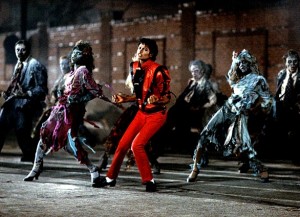Slate movie critic Dana Stevens brought together an enormously engaging and thoughtful group for the annual “movie club” round-up discussion of the year in film.
Reviewing films is a lot of fun, but one of the drawbacks is that we have to react so quickly and specifically. I like the way Slate goes beyond the top 10 lists and “best actor,” “best screenplay” summaries of the year with a very robust conversation about the patterns discernible with a bit of distance and context and the opportunity to adjust and revise one’s views in light of a second viewing or just more time to think.
Dan Kois responded to a challenge to explain why he was the only participant who included “Black Swan” on his top 10 list, provided a hilarious flow chart with his reaction to the “trashy greatness” of the film. And I was thrilled by his shout-outs to two performances I thought only I cherished this year, Ginnifer Goodwin in “Ramona and Beezus” and Kathryn Hahn in “How Do You Know” — two movies I thought were badly underrated by critics and audiences.
“Inception” is a film that benefited from a some further time to consider it. Matt Zoller Seitz led off by noting that that critics reviewed some of the year’s other mind-bendy movies by saying that they were more effective than the high-profile “Inception.”
Clearly “Inception” is to 2010 what “Avatar” was to 2009 and “Titanic” was to 1997 and what the original “Star Wars” was to 1977–the box-office juggernaut that many critics find lacking, perhaps egregiously shallow and overrated, but that cast such a powerful spell over millions that they keep invoking it over and over to call attention to their own pets.
Stevens responded
“Inception” was more a series of sensations than a movie–the filmic equivalent of an interactive haunted house where you’re blindfolded and someone thrusts your hand into a bowl of peeled-grape “eyeballs.” Six months later, all that remains are the sensations, which is why the Hans Zimmer button brings the entire Inception experience back in a single BrAAAAAHMMMM.
I was most intrigued by the debate about Sofia Coppola’s “Somewhere.” While friends I respect like Dustin Putman loved the movie, a tone poem that follows (I won’t say it’s “about”) a disaffected movie star and his young daughter, I found its neurasthenic preciousness hard to take. So I was very interested to see what members of the Movie Club had to say.
My views are most aligned with Dana Stevens: “‘Somewhere,’ to me, was a lovingly crafted, impeccably acted, but vanishingly slight little movie.” Stephanie Zacharek responded
Coppola has the lightest touch of any American filmmaker working, but she also has very distinct fingerprints. Her sense of humor is oblique, when it’s not downright odd. There’s that sequence in Somewhere where Stephen Dorff’s lost, disaffected movie star has been slathered with a chilly-looking mashed-potato substance as a prelude for some age-makeup that’s being designed for him. And Coppola and her D.P., Harris Savides, train the camera on that droopy white face (we hear Dorff’s noisy breathing on the soundtrack) for an inordinately long time, moving in verrrrry slowly. I don’t know that there’s an earth-shattering statement there demanding to be “gotten.” It’s like a knock-knock joke reinvented as a koan.
As with Dustin Putman’s review, it didn’t deepen my appreciation for the film, but it did support and deepen my appreciation for the critics and for criticism as a calling. Onward to 2011!


